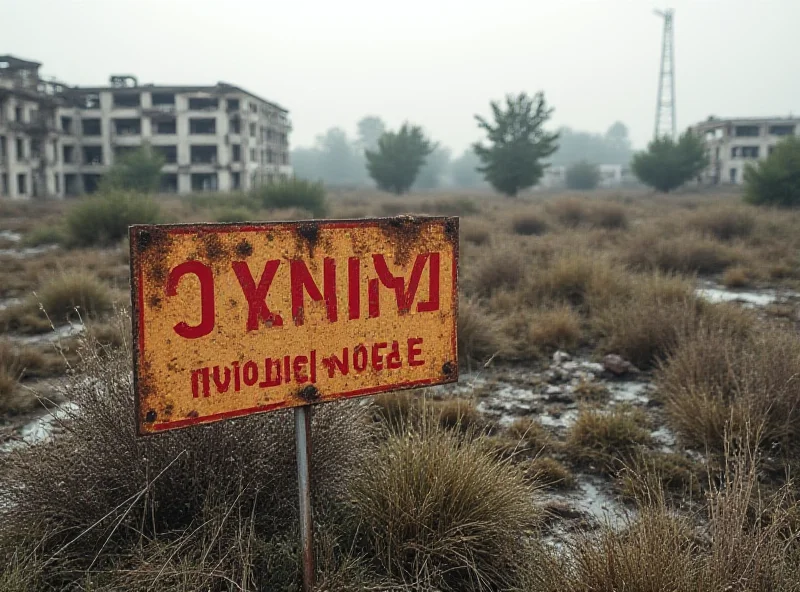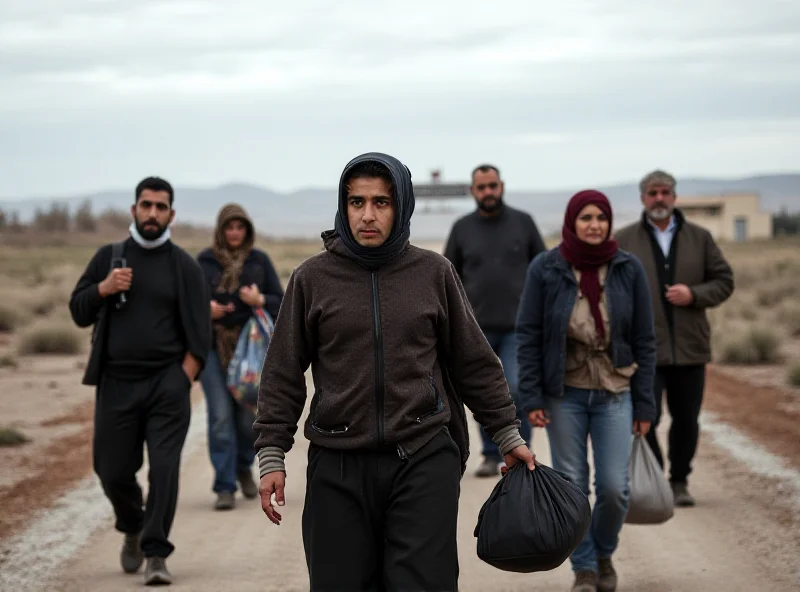Syria continues to grapple with the multifaceted consequences of years of conflict. Recent reports paint a picture of ongoing challenges, ranging from human rights concerns to the dangers posed by unexploded ordnance and the complexities of refugee repatriation.
Arrests and Human Rights Concerns
The Syrian Network for Human Rights has documented a disturbing trend. According to their latest report, at least 216 cases of arrest were recorded across Syria during the month of February. This highlights the persistent human rights concerns within the country and the ongoing need for international scrutiny of detention practices.

These arrests underscore the fragile state of civil liberties within Syria and the importance of organizations like the Syrian Network for Human Rights in monitoring and reporting on human rights abuses. The international community remains concerned about the fate of detainees and the need for due process and fair trials.
The Deadly Legacy of War
The scars of war run deep in Syria, and the danger doesn't end when the fighting subsides. Tragically, 11 people have been killed in six separate incidents involving explosions of mines and war remnants in various Syrian cities since February 20. These unexploded ordnance pose a constant threat to civilians, particularly in areas that have seen heavy fighting.
“The presence of these remnants of war is a daily threat to the lives of ordinary Syrians,” says a local aid worker, speaking on condition of anonymity. “Clearing these areas is a massive undertaking, and until it’s done, these tragedies will continue to occur.”

Germany's Return Assistance Program
Amidst the ongoing challenges, some Syrian refugees are choosing to return home. The German federal government has provided return assistance to 133 Syrian refugees who voluntarily decided to return to their country. This return assistance program was launched in January 2025 to support refugees in their repatriation process.
While the decision to return is a personal one, the program highlights the complex factors influencing refugee movements. The program aims to support those who choose to return, offering assistance with reintegration and rebuilding their lives in Syria.

It's important to note that the situation in Syria remains complex and challenging. The decision to return is influenced by factors such as security concerns, economic opportunities, and the availability of essential services. The international community continues to monitor the situation and provide assistance to those in need, both within Syria and in neighboring countries hosting refugees.
The name Ibrahim Hananu, a distinguished orator, is also mentioned in Syrian history, along with Fakhri Al-Baroudi. Both figures are associated with knowledge and intriguing historical narratives, but the specifics of their stories are not detailed in these reports.
